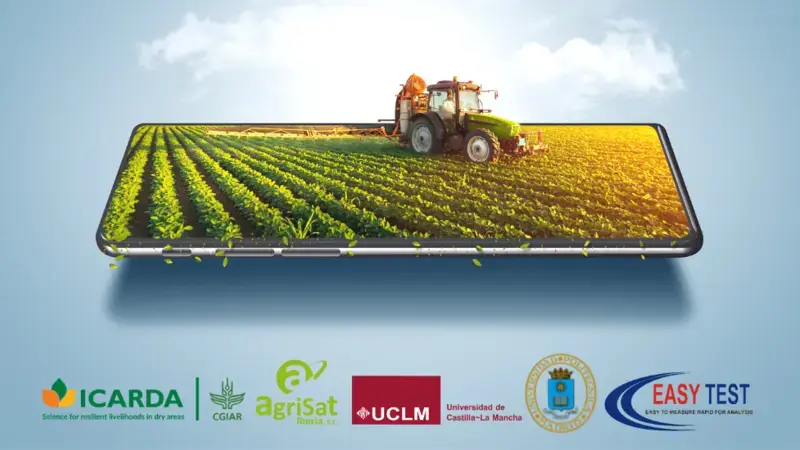Smart Integration of New Technology and Traditional Knowledge for a Sustainable Agricultural Future

How AgriSat’s groundbreaking remote sensing tools can contribute to more productive and cost-efficient wheat farming in Egypt
Cereals and root crops are vital staple food and animal feed crops throughout Mediterranean countries, including Egypt, and typically occupy almost one-third of their farmland. Given their importance and the threat posed by climate change and global shocks, targeted innovation in production methods can immediately positively impact food and nutrition security, livelihood resilience, and other factors that improve countries' economies and the lives of farmers.
A groundbreaking area of research for the Egyptian agricultural community is in geospatial data generation to assist Egyptian farmers, extension services, and land and water managers in improving crop yields by informing better water and fertilizer use management. Alongside AgriSat Iberia S.L., the Universidad Politécnica de Madrid, the University of Castilla La Mancha, and Easy Test (an Egyptian private company), ICARDA is calibrating a trial deck of remote-sensing tools for Egyptian agricultural conditions for generation of accurate data to enrich production. The Spanish Center for the Development of Industrial Technology (CDTI) partially funds the project.
The project’s target crops are wheat, barley, maize, and potato due to their economic importance and environmental significance in nitrogen fertilization. Once attuned to hot and arid Egyptian environments, the remote-sensing tools will provide new and informative data to determine the water and nutrient demands of the target crops. Given acute water scarcity in Egypt, together with high costs and limited availability of fertilizers, Egyptian farmers armed with the new data stand to significantly benefit through better yields and lower inputs costs while reducing environmental pollution from the over-use of nitrates.
The wheat trials use only genetic material registered in the multilateral system of the International Treaty on Plant Genetic Resources for Food and Agriculture. AgriSat’s tools will remote-sense test wheat crops positioned in the Beni Sueif crop research center ICARDA runs alongside Egypt’s Agricultural Research Center (ARC). The new data will inform AgriSat’s algorithms on recommendations for optimizing fertilizers in Egyptian conditions. ICARDA will then analyze the initial outcomes against its substantial historical dataset to help AgriSat further refine its algorithms.
While the algorithms will belong to AgriSat, the data from the refined algorithms will contribute to the fertilizer component of ICARDA’s GeoAgro-MiSR app, a free smartphone app for field data analysis aimed at Egyptian farmers but available free of charge to anyone. Developing apps in partnerships within the private sector ensures affordable access for farmers to cutting-edge remote-sensing technology. Farmers directly involved in the AgriSat project in Egypt will also benefit from a better understanding of irrigation water use for key crops. They will also be directly involved in monitoring the pilot sites and providing knowledge and expertise at the evaluation phase, ensuring ICARDA fulfills its ethos of bringing in the end-user right from the start to make sure innovations are demand driven.
All information products, including metadata, under this project are open access, in line with the CGIAR Open and FAIR Data Assets Policy. The project was developed in line with the CGIAR Principles on the Management of Intellectual Assets.
